CHAKOTHI, Pakistan: Muhammad Latif never thought he would be washing buses for a living, but he took the job three years ago after shutting down the watermill that had been in his family for six decades.
Years of drought and erratic rains have devastated crops in his village of Chakothi, on the border of Pakistan-administered Kashmir, leaving locals with no grain to grind and no business for his mill, he said.
“When people stopped coming for grinding, I locked it up and started washing buses to buy bread for my family,” Latif, 50, told the Thomson Reuters Foundation, pointing at his deserted mill. “I am left with no option.”
Latif is among hundreds of millers who have had to abandon their trade as changing rain patterns shrink crop yields across the disputed Himalayan region, agricultural experts said.
Zahid Ahmed, business development officer with Pakistan’s National Rural Support Programme, estimated the region has more than 2,000 watermills.
But most have had to shut as harvests declined by 40 percent over the past decade, with only about 250 still functioning, he said.
Last year, incessant rains close to harvesting time caused huge crop losses all over Kashmir, said Murtaza Gillani, deputy director at the agriculture department for Jhelum valley, where Latif’s village is situated.’
“A farmer becomes dejected when his crop is lost near reaping, which forces him to switch to other jobs,” Gillani said, adding he once watched a farmer set fire to his entire field of failed crops in despair.
WHEAT PREFERENCE
Pakistan ranked fifth in last year’s Global Climate Risk Index published by environmental think-tank Germanwatch, which looks at countries suffering most from extreme weather events.
Those impacts, made worse by climate change, have had a knock-on effect on the hundreds of watermills, known locally as jandar, that were built decades ago along the brooks and streams of Kashmir, mainly for grinding wheat and maize, or corn.
Choudhary Muhammad Kareem, a farmer from Khaigaran village near Chakothi, remembers when there were a dozen watermills working along the brook near his farm — now only two are left.
Along with changing rain patterns, said Kareem, 65, shifting food habits are also putting a strain on watermills, with many young Kashmiris preferring wheat over corn.
As growing numbers of farmers swap from the hardy corn variety used in the region to wheat to meet demand, they lose more of their crops in dry spells or heavy rains, and watermills see less business, Kareem explained.
For farmers who are still managing decent yields, watermill closures force them to spend added time and expense to get their grain ground into flour.
“It costs me 2,000 Pakistani rupees ($13) if I rent a car to take wheat or maize for milling to the nearest town, which is 8 kilometers (5 miles) away from Chakothi,” Kareem said.
WATER SCARCITY
Agriculture experts estimate about 80 percent of farmland in Azad Kashmir Kashmir depends on rain for irrigation, but water shortages across Pakistan mean even those using irrigation systems often find their crops going thirsty.
Zaheer Gardezi, a water harvesting expert and former director of the national government’s rainwater harvesting project, said 70 years ago Pakistan’s annual per capita water availability topped 12,000 cubic meters.
Today, it has dropped to about 900 cubic meters per person per year, he said.
The United Nations defines a country as water stressed if annual availability falls below 1,700 cubic meters per person, and water scarce if it reaches 1,000 cubic meters.
With Kashmiri farmers struggling to grow enough to earn an income and feed their families, 3 million people are currently getting subsidised flour through a government program, said Sardar Amanullah Khan, director of the Kashmir food department.
Demand for subsidised flour — which is ground at industrial, electrically powered mills — jumped 30 percent after last year’s heavy rains, he added.
NEW MILL USES
The vicious cycle of extreme weather and ruined crops has put a strain on Kashmir’s watermills for years, said Muhammad Naeem Ahmed, director of the Office of Research, Innovation and Commercialization at the University of Azad Jammu and Kashmir and a farmer himself.
“Watermills are environmentally friendly and they are disappearing fast as frequent erratic rains and droughts are impacting farmers,” Ahmed said.
He suggested authorities look for new ways to adapt the mills to generate income, pointing to electricity generation and sawing logs for timber as examples.
Farmers also need to take adaptive measures, such as sowing hybrid crop varieties that can stand up better to severe weather, he said.
Muhammad Bashir Butt, secretary of Kashmir’s agriculture department, said the government is developing new climate-resilient seed varieties, as well as educating farmers on the benefits of adjusting planting times.
It is also reconstructing irrigation channels damaged by landslides, floods and the disastrous earthquake that struck the region in 2005, he said, noting the project could both benefit farmers and help revive shuttered mills.
Watermills could be set up over the canals and run on the water flowing through them, Butt told the Thomson Reuters Foundation.
But Latif, the mill owner in Chakothi, said even with a more reliable source of running water, he would still need government assistance to restore his mill after closing it for so long.
Made out of mud, wood and stone, the watermills start to fall apart without regular use and maintenance, he explained.
“I can restore this (mill) if the government or an NGO provides me with 50٫000 rupees,” he said.
“I do hope I will be able to restore my watermill soon, so I can try to save some money to buy food for my family.”
Watermills grind to a halt as erratic weather hits Kashmir grains
https://arab.news/vymw7
Watermills grind to a halt as erratic weather hits Kashmir grains
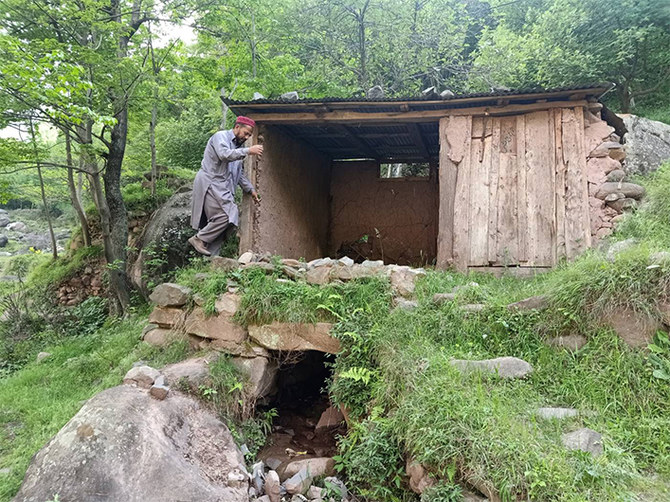
- Region has over 2,000 watermills, most have had to shut as harvests declined by 40% over past decade
- Shifting food habits are also affected watermills, with many young Kashmiris preferring wheat over corn
Pakistan face Korea in Azlan Shah field hockey tournament today

- Pakistan began tournament on winning note after beating Malaysia 5-4 on Saturday
- The 30th edition of the prestigious tournament is being played in Malaysia’s Ipoh city
ISLAMABAD: Pakistan will face Korea in the Sultan Azlan Shah field hockey cup today, Sunday, after beginning the tournament on a winning note a day earlier by beating hosts Malaysia, state-run media reported.
The 30th edition of the prestigious field hockey tournament is being played in Ipoh, Malaysia from 4-11 May. The cup will be contested between six teams, namely Canada, Japan, Malaysia, New Zealand, Pakistan and Korea.
Pakistan’s national hockey team made a triumphant start to the tournament on Saturday, defeating hosts Malaysia by 5-4 in a thrilling match.
“The Pakistan hockey team would face Korea in their second match on Sunday (May 5),” state-run media Associated Press of Pakistan (APP) reported.
Pakistan have the upper hand against Korea as far as the head-to-head record is concerned. The South Asian country has won 14 matches in total against Korea while the latter has won eight. Both teams have drawn with each other six times.
Pakistan’s hockey team came from behind on Saturday to down Malaysia 5-4 to win the contest. Sufiyan Khan, Pakistan’s drag flicker, scored a hat-trick while Zakriya Hayat and Abu Bakar Mahmood contributed one goal each to the team’s victory.
The Sultan Azlan Shah Cup 2024 will see a round-robin stage at first where all six teams will play each other once, followed by positional playoffs.
The teams finishing in the bottom two places of the league stage will contest in a fifth-place classification match. Teams finishing in third and fourth place in the pool stage will compete for bronze, while the top two teams will play in the final for the title.
The match is scheduled to begin at 3:15 p.m. Pakistan Standard Time (PST).
Saudi business delegation to arrive in Pakistan today to explore investment opportunities
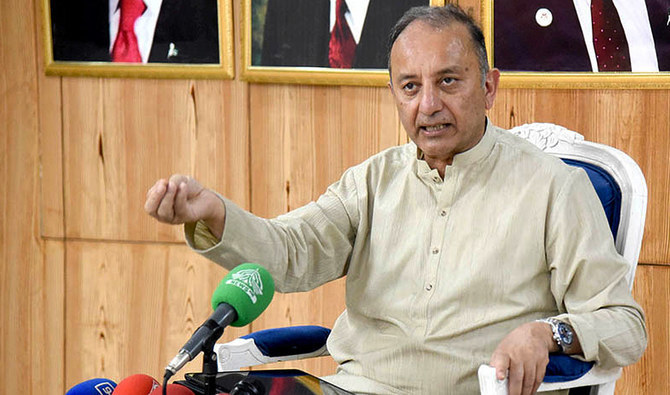
- Saudi deputy investment minister, representatives of 30-35 Saudi companies part of delegation, says Pakistani minister
- Saudi Arabia recently reaffirmed its commitment to expedite investment package for Pakistan worth $5 billion
ISLAMABAD: A high-level Saudi business delegation led by the Kingdom’s deputy investment minister will arrive in Pakistan today, Sunday, to explore investment opportunities in various economic sectors, Federal Minister for Petroleum Musadik Malik confirmed a day earlier.
Pakistan and Saudi Arabia, who enjoy fraternal ties rooted deep in shared culture, religion and economic cooperation, have witnessed a flurry of official visits in recent weeks. Saudi Foreign Minister Prince Faisal bin Farhan traveled to Islamabad earlier in April before Prime Minister Shehbaz Sharif’s two-day visit to the Kingdom to attend a World Economic Forum meeting where he met Saudi officials.
“The Saudi Deputy Investment Minister is visiting Pakistan tomorrow,” Malik, who is also the focal person for Saudi-Pak bilateral collaboration, told reporters at a news conference in Lahore on Saturday.
“He is bringing representatives from 30 to 35 companies whose CEOs are coming here.”
The Pakistani minister maintained his country had always cherished cordial ties with the Kingdom, though it had not managed to turn this “relationship of friendship into a relationship of stability and progress.”
He said Pakistan mostly discussed its financial concerns with the Saudi authorities and requested their support. However, the present government wanted to change that by focusing its bilateral conversations on mutually beneficial progress and development, not aid and assistance.
The minister said the two sides discussed a new refinery project during the recent engagements that would be used for export purposes to earn foreign revenue. Additionally, food security was also discussed to further strengthen Pakistan’s agricultural sector.
He informed that Prime Minister Sharif wanted the country’s “private sector to take the lead on this path to progress.”
“That is why Saudi investors have been invited to come here,” he continued. “They will sit with Pakistani companies and figure out ways to connect the Pakistani talent with the capital and investment needed at the international level for the IT revolution.”
Malik said the bilateral collaboration would primarily benefit small businesses, particularly the technology companies established by young students who were likely to get a significant amount of investment from Saudi entrepreneurs.
He expressed optimism that chemical, energy and agricultural companies would also gain an advantage from the ongoing bilateral collaboration between the two sides.
Apart from Pakistan and Saudi Arabia’s fraternal ties, the Kingdom is particularly important to Islamabad as it is home to over 2.7 million Pakistani expatriates and serves as the top source of remittances to the cash-strapped South Asian country.
Both Pakistan and Saudi Arabia have been closely working to increase bilateral trade and investment deals, and the Kingdom recently reaffirmed its commitment to expedite an investment package worth $5 billion.
Pakistan urges Hajj pilgrims to get vaccinated five days before departure to Saudi Arabia
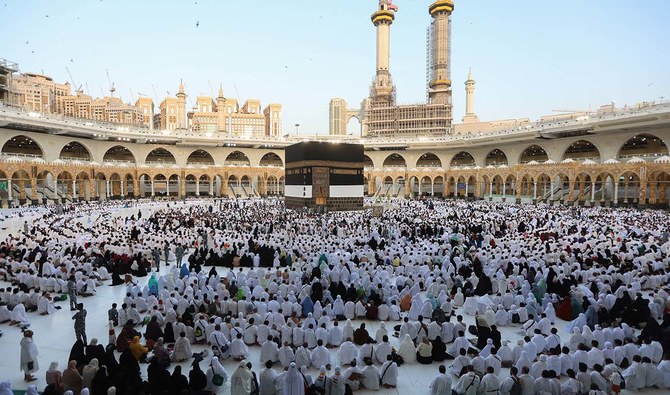
- Pakistani pilgrims require to vaccinate themselves against meningitis, seasonal influenza and polio
- The vaccinations are done at Hajji camps during the day in all major cities around the country
ISLAMABAD: Pakistan’s religious affairs ministry on Saturday asked Hajj pilgrims to get themselves vaccinated at least five days before departure to Saudi Arabia to avoid inconvenience.
Hajj pilgrims must comply with strict vaccination requirements set by the Saudi Ministry of Health to ensure public safety during one of the world’s largest annual gatherings.
Mandatory vaccines include the meningitis shot, with additional recommendations for the seasonal influenza vaccine, while travelers from regions prone to yellow fever and polio must also provide corresponding immunization certificates.
These precautions are vital to prevent the spread of infectious diseases among millions of pilgrims converging in the kingdom from across the globe.
“The intending pilgrims are advised to visit their respective Hajji camps five days (from 9 am to 5 pm) before their flight to receive vaccination against meningitis, seasonal influenza and polio, besides obtaining a yellow card,” the state-owned Associated Press of Pakistan (APP) news agency quoted a statement issued by the ministry.
“This is a mandatory requirement,” it added.
Hajj is one of the Five Pillars of Islam, which include the core beliefs and practices every Muslim is expected to follow.
The pilgrimage is required to be performed at least once in a lifetime by all adult Muslims who meet the necessary conditions of health and financial stability to travel to and perform the rituals in Makkah.
Pakistan plans to launch the special Hajj flight operation from May 9 that will continue until June 10.
Security forces kill six militants in northwest Pakistan
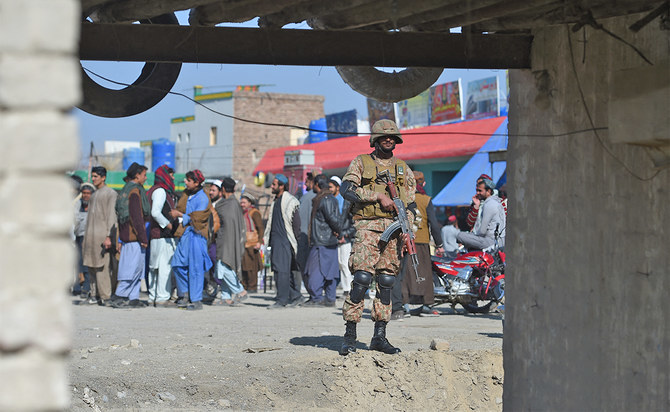
- The intelligence-based operation was carried out in North Waziristan that led to an intense exchange of fire
- The targeted militants were involved in violent attacks against security forces and civilians in the volatile area
ISLAMABAD: Pakistani security forces carried out an intelligence-based operation in North Waziristan tribal district in the early hours of Saturday, killing six militants after a heavy exchange of fire.
Located in the tribal belt along the Pakistan-Afghanistan border, North Waziristan has historically been known as a volatile region with significant militant activity.
The Pakistani military carried out several major operations in the area to dismantle militant networks and had success in reducing violence.
However, there have been reports of renewed militant activities in the region, prompting the Pakistani security forces to once again increase its focus on these challenges.
“On night 3/4 May 2024, security forces conducted an intelligence based operation in North Waziristan District, on reported presence of terrorists,” the military’s media wing, ISPR, said in a statement.
“During the conduct of operation, intense fire exchange took place between own troops and the terrorists,” it continued, adding that six militants were killed as a result.
The statement informed that the security forces also destroyed militant hideout during the operation and launched a “sanitization operation” in the area while trying to locate any remnants of the militant group.
“The killed terrorists remained actively involved in numerous terrorist activities against security forces as well as target killings of innocent civilians in the area,” the ISPR added.
Pakistan telecom authority seeks review of tax agency directive to block SIMs of non-filers
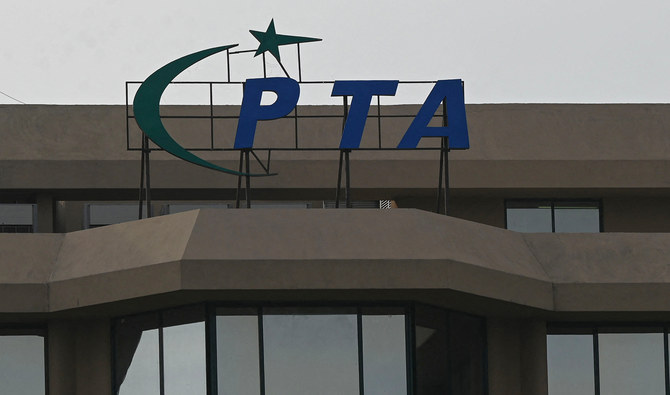
- Federal Board of Revenue issued a list of over half a million people who did not file tax returns in 2023
- Reports indicate that telecom companies showed reluctance to block the SIMs of so many subscribers
ISLAMABAD: The Pakistan Telecommunication Authority (PTA) on Saturday showed reluctance to implement the instructions of the country’s tax collection body to block the SIMs of non-filers, while asking the authority to review its decision.
The development came after the Federal Board of Revenue (FBR) issued a list of over half a million people who did not file income tax returns for 2023, instructing the PTA to block their cellphone SIMs as a penalty.
However, media reports indicated that telecom companies were reluctant to carry out the directives affecting so many subscribers, prompting an official meeting on Friday in which the government decided to act against anyone opposing FBR’s orders.
Still, the PTA circulated a brief notification on Saturday, seeking a review of the FBR’s decision.
“On the issue of blocking of mobile phone SIMs under section 114-B of Income Tax Ordinance, 2001, Pakistan Telecommunication Authority (PTA) has communicated to FBR that the Income Tax General Order (ITGO) in the manner as referred to the Authority needs review before its execution by the concerned entity/entities,” the notification said.
“In the meanwhile, PTA has also initiated consultation with stakeholders on the subject issue,” it added.
Pakistan has traditionally faced the challenge of convincing people to file their tax returns.
However, the government has decided now to implement stringent measures to address the problem, particularly in the context of negotiations for a new International Monetary Fund (IMF) program.
The IMF has frequently urged Pakistan to enhance its revenue collection from non-filers as part of broader economic reforms to support social and development initiatives.
In response, the FBR is taking steps like blocking the SIM cards of non-filers and considering other punitive measures to enforce tax compliance and widen the tax net.










